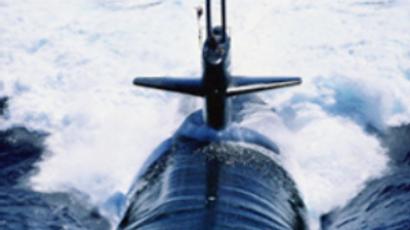News of UK-France nuclear submarine collision surfaces
The British and French Ministries of Defence confirm that two nuclear-powered submarines were involved in an underwater collision earlier this month.
According to the British Royal Navy, Britain's HMS Vanguard and France's Le Triomphant collided in the Atlantic Ocean earlier this month during routine maneuvers.
Both submarines are nuclear-powered and can carry up to 48 nuclear warheads on 16 ballistic missiles, leading to fears that the accident could have caused a radioactive nightmare on the ocean floor.
“They briefly came into contact at a very low speed while submerged. There were no injuries. Neither their nuclear deterrence missions nor their safety were affected,” France’s defence ministry said Monday in a statement.
Neither Britain nor France would confirm the exact date of the accident, but said that it occurred earlier this month.
Many observers are shocked by the accident, as well as the amount of time it took for the news to reach the public.
Kate Hudson, the chairwoman of the UK-based Campaign for Nuclear Disarmament said “the collision of two submarines, both with nuclear reactors and nuclear weapons onboard, could have released vast amounts of radiation and scattered scores of nuclear warheads across the seabed.”
Andrey Frolov, from Moscow’s Centre for Analysis of Strategy and Technology, says that observing submarine collisions in the past indicate that the threat of a nuclear explosion was unlikely, but for the crew the consequences could have been deadly.
“Two US and five Soviet submarine accidents in the past prove that the reactor protection system makes an explosion avoidable,” said Frolov. “But if the collision had been more powerful the submarines could have sunk very quickly and the fate of the 250 crew members would have been very serious indeed.”
A senior British Navy source told The Sun, a British daily newspaper, that the potential consequences of such a collision were “unthinkable”.
“It's very unlikely there would have been a nuclear explosion, but a radioactive leak was a possibility,” the Navy source said. “Worse, we could have lost the crew and warheads. That would have been a national disaster.”
The nuclear submarines came into contact at low speed and no injuries were reported. But neither submarine detected the presence of the other vessel until it was too late, despite being outfitted with sophisticated sonar technology.
Both the British and French Ministries of Defence insist nuclear security has not been compromised, yet experts argue that more needs to be done to ensure submarine safety in the future.
According to Andrey Frolov from Moscow’s Centre for Analysis of Strategy and Technology, there are no safety standards for submarines.
“I think this accident will force countries that possess nuclear submarines to sit down at the negotiating table and devise safety precautions that might avert such accidents in the future… But because submarines must be concealed and invisible, safety and navigation laws are hard to define,” Frolov said.
Leah Ferguson, RT














